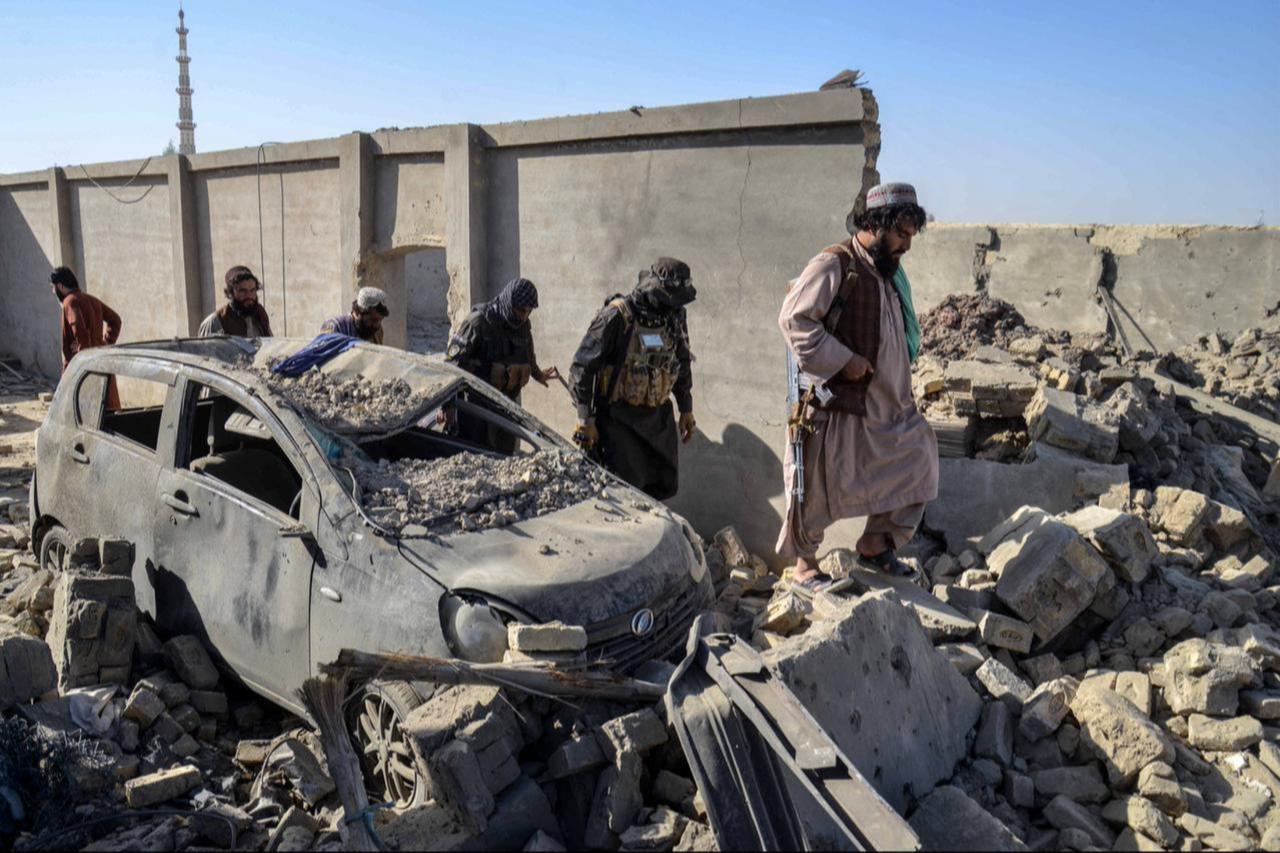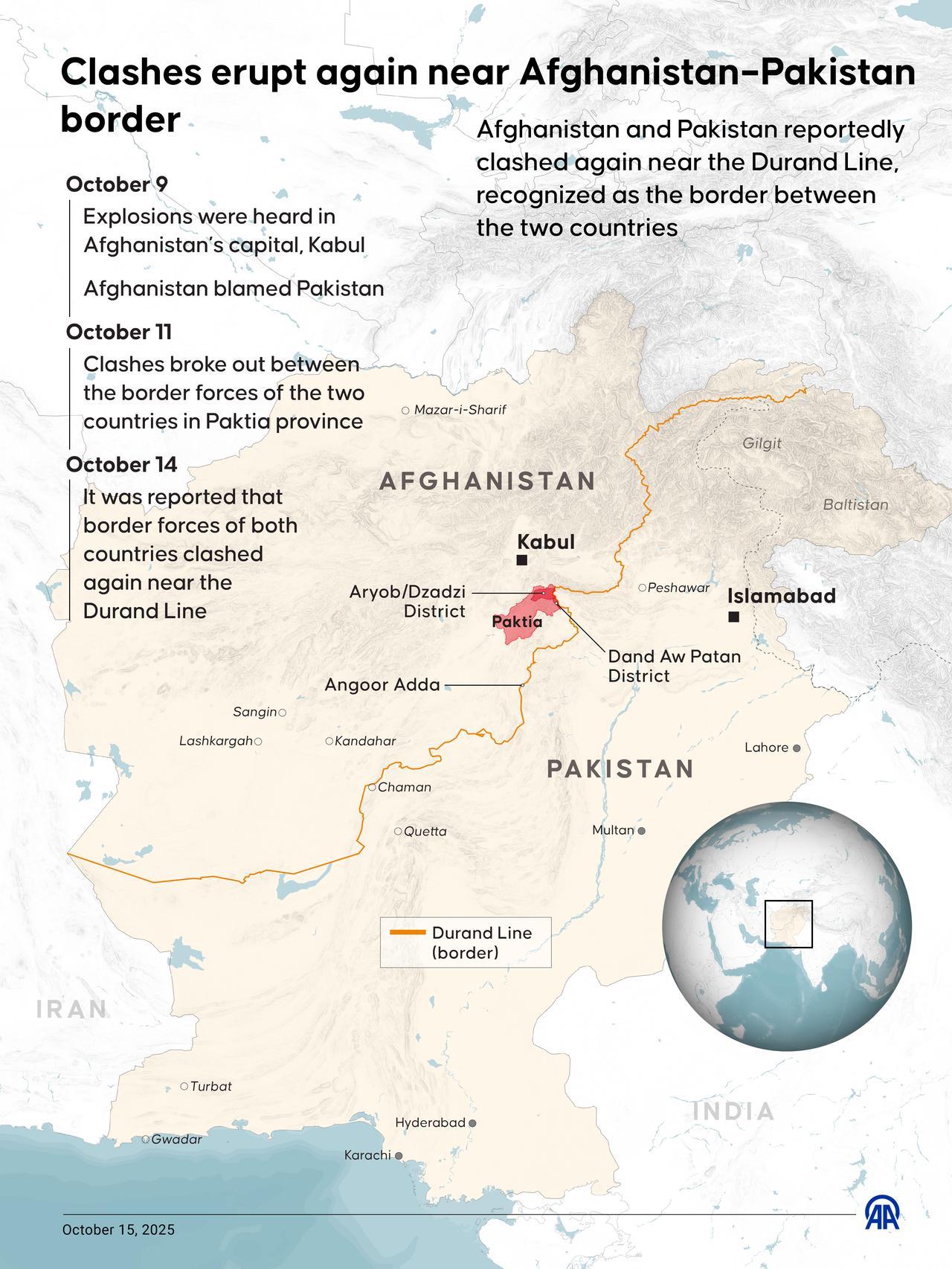
Talks between Afghanistan and Pakistan in Istanbul aimed at brokering a long-term truce ended without resolution, according to multiple reports, dealing a setback to peace efforts following deadly clashes along their shared border earlier this month.
Citing two sources familiar with the matter, Reuters reported Tuesday that the latest round of Türkiye-hosted negotiations concluded without agreement.
A Pakistani security source told the agency that the Taliban delegation was “unwilling to commit” to curbing the Pakistani Taliban, a separate militant group that Islamabad accuses of operating freely inside Afghanistan.
An Afghan source confirmed that the talks ended after “tense exchanges” over the issue, adding that Kabul maintained it had “no control” over the TTP, which has carried out several attacks against Pakistani security forces in recent weeks.
Türkiye hosted the second round of peace talks on Oct. 25, following a Doha meeting earlier this month where the two sides agreed to a temporary ceasefire after days of intense cross-border fighting—the deadliest since the Taliban seized power in Kabul in 2021.
The 48-hour ceasefire, initially announced on Oct. 15, was later extended through the conclusion of the Doha talks mediated by Qatar and Türkiye.
The violence, which erupted along the volatile border known as the Durand Line, left dozens dead and heightened tensions between the two South Asian neighbors.

While Reuters reported that the Istanbul talks collapsed without a breakthrough, Afghan media offered a more optimistic account.
Kabul-based Tolo News said delegations from both countries had “reached an agreement on many matters” during technical committee meetings held in Istanbul to finalize ceasefire details.
Informed Afghan sources told the outlet that progress was made on several points of contention, though no formal announcement has been made.
The recent escalation has renewed international efforts to stabilize relations between Islamabad and Kabul.
Türkiye and Qatar have both played prominent mediation roles since border clashes intensified this month.
Despite the fragile ceasefire, both sides have continued to accuse each other of cross-border violations and harboring militants, raising concerns over the durability of any future agreement.
The ongoing dispute marks the worst period of Afghan-Pakistani tension since the Taliban’s return to power in 2021, threatening to further destabilize regional security.